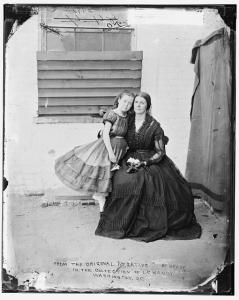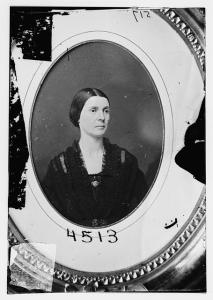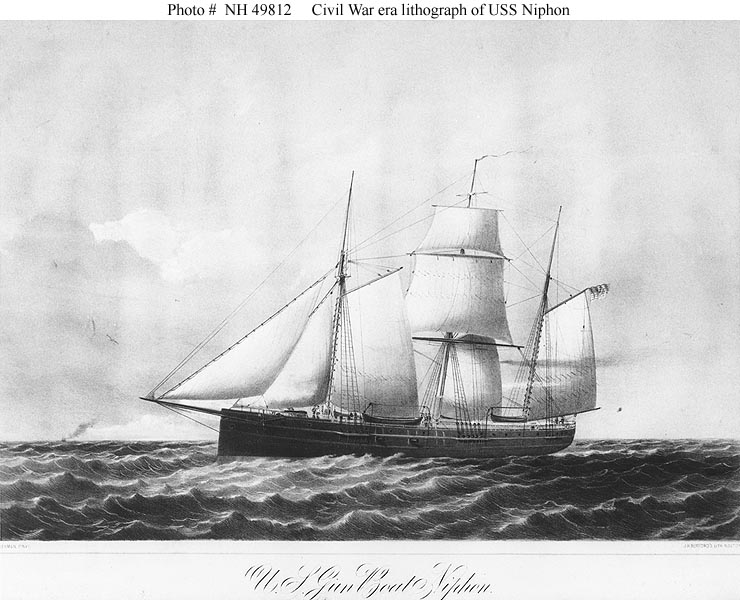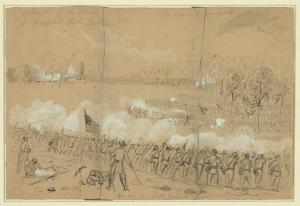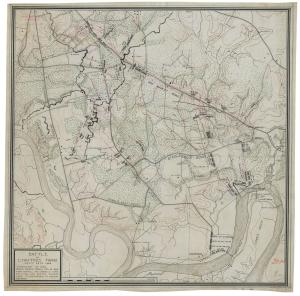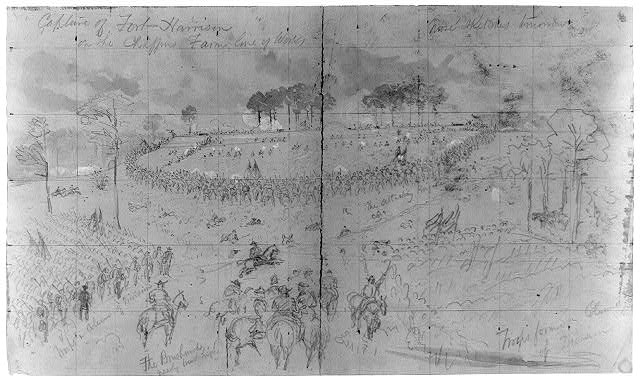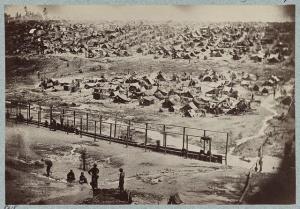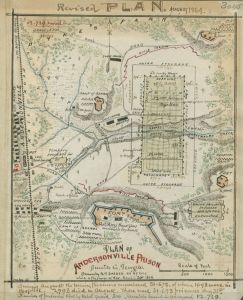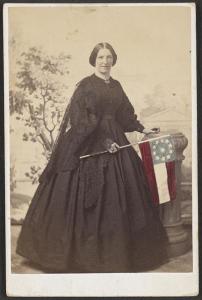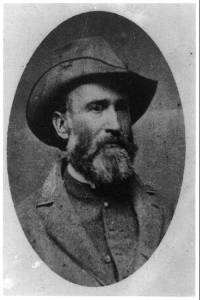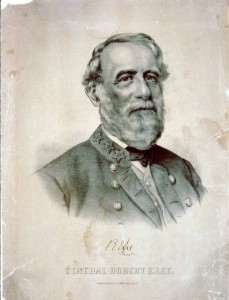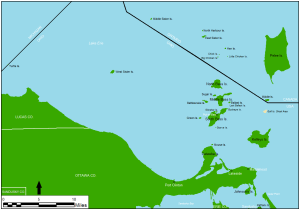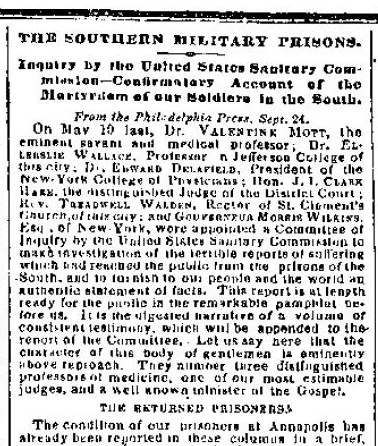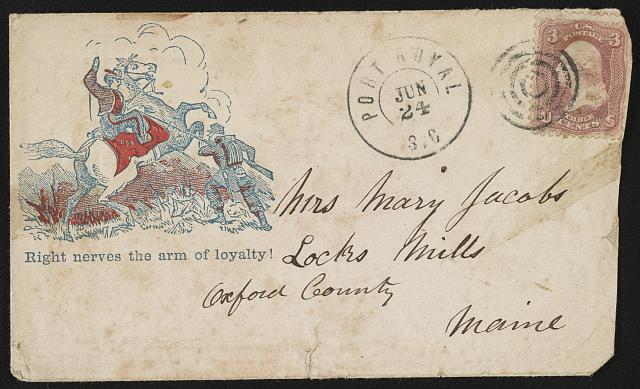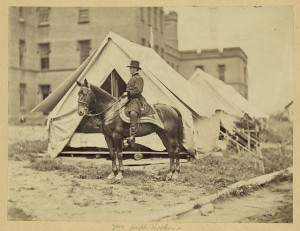From the Richmond Daily Dispatch October 4, 1864:
Drowned.
—Mrs. Rose Greenhow, well known in the Confederacy for her sufferings in its cause, –having been for months confined in the political prison at Washington,–was drowned on Saturday last near Wilmington, North Carolina, while landing from a sinking steamer. She was returning from England, where she had been to make arrangements for publishing a book, which has already appeared. She resided for some time in this city after her release from prison at Washington.
From the Richmond Daily Dispatch October 18, 1864:
Destruction of a Blockader — repulse of an attack on the shipsteamer Condor.
–It is generally known that the large, three-funnelled steamer Condor, from Halifax, Nova Scotia, in going into Wilmington, North Carolina, a week ago, was deceived by the wreck of the Night Hawk, and ran aground. It was in attempting to come ashore from her in a boat that Mrs. Rose Greenhow was drowned. The Condor has been slowly unloading under the guns of Fort Fisher, and a guard, as usual, has been kept on her at night. On last Friday night, the Yankees made an attempt to board the Condor, to destroy her, but were gallantly repulsed by Lieutenant Sowles, of company A, Thirty-sixth North Carolina troops, and a detachment of men.
As soon as the attempt was made, Lieutenant Sowles communicated the fact to Fort Fisher, when her heavy guns burst forth to right and left of the Condor. The second shell fired to the left of the Condor struck a gunboat that had accompanied the boat party in, and so completely ruined her that she was run ashore on the south breaker of the bar and abandoned. The enemy set fire to her in several places, and before morning she was totally destroyed, her magazines having exploded and torn her to pieces. Since this occurrence, on Friday night last, there has been no sign of the enemy off the bar at night, and the fleet is hull down during the day.
Skipping ahead to Mrs. Greenhow’s funeral, as described inthe Richmond Daily Dispatch of October 12, 1864:
The funeral of Mrs. Rose Greenhow.
–The death, by drowning, of Mrs. Rose Greenhow, near Wilmington, North Carolina, last week, has been already noticed. She leaves one child, an interesting little daughter, who is in a convent school at Paris, where her mother left her upon her return to this country. Hundreds of ladies lined the wharf at Wilmington upon the approach of the steamer bearing Mrs. Greenhow’s remains. The Soldiers’ Aid Society took charge of the funeral, which took place from the chapel of Hospital No. 4. A letter to the Sentinel, describing it, says:
“It was a solemn and imposing spectacle. The profusion of wax lights round the corpse; the quantity of choice flowers, in crosses, garlands and bouquets, scattered over it; the silent mourners, sable-robed, at the head and foot; the tide of visitors, women and children, with streaming eyes, and soldiers, with bent heads and hushed steps, standing by, paying the last tribute of respect to the departed heroine. On the bier, draped with a magnificent Confederate flag, lay the body, so unchanged as to look like a calm sleeper, while above all rose the tall ebony crucifix — emblem of the faith she embraced in happier hours, and which, we humbly trust, was her consolation in passing through the dark waters of the river of death. She lay there until two o’clock of Sundayafternoon, when the body was removed to the Catholic Church of St. Thomas. Here the funeral oration was delivered by the Rev. Dr. Corcoran, which was a touching tribute to the heroism and patriotic devotion of the deceased, as well as a solemn warning on the uncertainty of all human projects and ambition, even though of the most laudable character.
“The coffin, which was as richly decorated as the resources of the town admitted, and still covered with the Confederate flag, was borne to Oakdale Cemetery, followed by an immense funeral cortege. A beautiful spot on a grassy slope, overshadowed by wavering trees, and in sight of a tranquil lake, was chosen for her resting place. Rain fell in torrents during the day; but as the coffin was being lowered into the grave, the sun burst forth in the brightest majesty, and a rainbow of the most vivid color spanned the horizon. Let us accept the omen, not only for her, the quiet sleeper, who, after many storms and a tumultuous and checkered life, came to peace and rest at last, but also for our beloved country, over which we trust the rain bow of hope will ere long shine with brightest dyes. …
Wilmington, North Carolina was the last port to fall to the Union and Fort Fisher was still in Confederate hands 150 years ago this month, but even the Dispatch in another October 18th report admitted that the Yankee blockade was effective – only Old Man Winter would grant a reprieve:
From Wilmington.
From a gentleman just from Wilmington we learn that the blockade of that port is as effective as Yankee ingenuity and an unlimited force of gunboats can make it. They have now established two lines of picket boats in the offing to give the alarm of the attempted egress of blockade- runners, and as soon as the latter make their appearance, the boats throw up rockets and burn blue lights. The Yankee arrangements for blockading the port are good, and will hold so perhaps a month longer, when they will all be swept away by the rude blasts of winter. This North Carolina coast is, in winter, the most dangerous in the world; and when winter, sets in the blockaders must stand off to sea, or they will inevitably be blown ashore and wrecked.
The USS Niphon was the Union ship that ran the Condor aground:
Late on the night of 29 September, Niphon fired upon Night Hawk as she attempted to run into New Inlet, and observed her go aground. A boat crew led by Acting Ensign Semon boarded the steamer and, under fire from Fort Fisher, set her ablaze and brought off the crew as prisoners.
Niphon ran British blockade runner Condor aground off New Inlet, 1 October, but was prevented from destroying the steamer by intense fire from Fort Fisher. Among the passengers on board Condor was one of the most famous Confederate agents of the war, Mrs. Rose O’Neal Greenhow who, fearful of being captured with her important dispatches, set out in a boat for shore. Her craft overturned in the heavy surf. The crew managed to get ashore; but the lady weighted down by $2,000 in Confederate gold in a pouch around her neck, drowned.
I don’t think there is a consensus about the gold.

